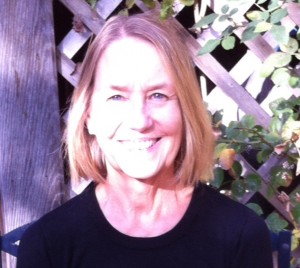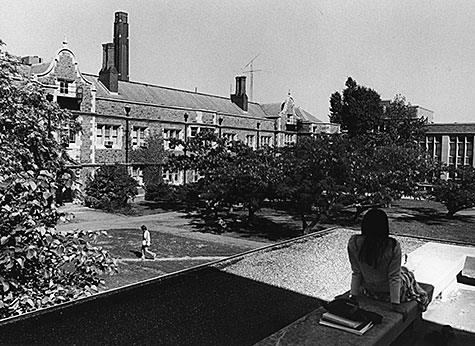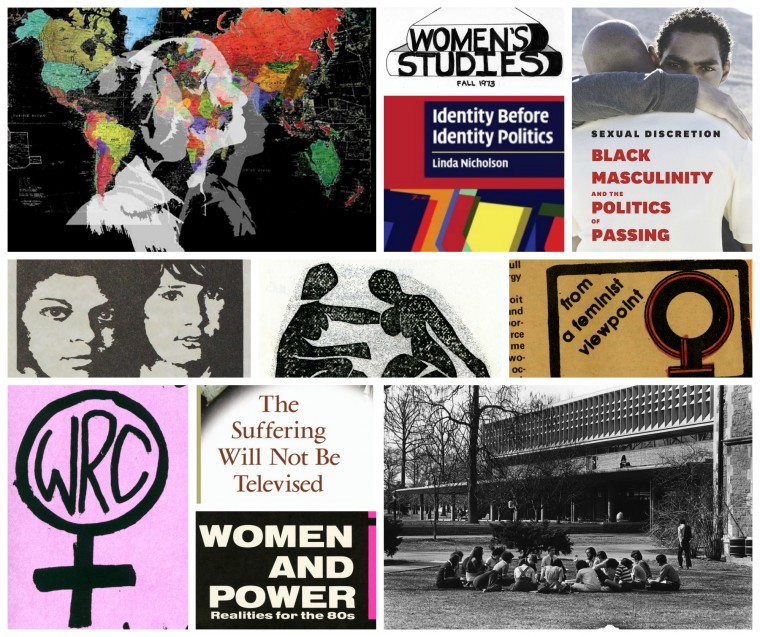In 1972, Arts & Sciences at Washington University in St. Louis launched one of the nation’s first academic programs in women’s studies. Over the years, the program has continued to grow and expand, establishing itself as an important resource for students and faculty working on gender-related topics.
On Nov. 5, the university will celebrate a new milestone when Women, Gender, and Sexuality Studies, as the program is now known, becomes a full department.
“This is a great moment — for current students and faculty but also for all of those whose vision and dedication helped to prepare the way,” said Barbara Schaal, PhD, the Mary-Dell Chilton Distinguished Professor and dean of the faculty of Arts & Sciences.
“It reflects the maturation of the program but also, in a larger sense, of the academic field,” Schaal continued. “Questions of gender and sexuality underlie many issues not only in scholarship but also in contemporary life across the globe.”
A quarter-century in the making
For Mary Ann Dzuback, PhD, who has directed Women, Gender, and Sexuality Studies since 2006 — and who now will serve as department chair — the transformation has been, quite literally, a quarter-century in the making.
In 1990, as a recently arrived assistant professor of education, Dzuback worked with a small group of feminist faculty to revamp the program’s governing structure, then spent more than two decades on its executive committee. But she particularly credits a 2006 external review with setting the stage for today’s announcement.

“We were the first Arts & Sciences program to undergo a formal external review,” Dzuback said. “It was a fantastic experience. It gave us a good grasp of who we are as a program, of where we stand in relation to peer institutions, and of what we have to offer. It helped us to get our house in order, and to start thinking about ways of moving forward.”
The change also reflects a steady growth, especially over the last 10-15 years, in both faculty and student engagement. Today, the eight core faculty are joined by more than 40 affiliates from across the university. Enrollment includes more than 60 majors and 30 minors, with another 31 students participating in the graduate certificate program.
“The growth truly has been organic,” Dzuback said. “We’re a student-centered program, and students often provide the impetus for developing new courses or new areas of faculty expertise. There’s a real community on campus that’s interested in exploring issues of gender, feminism and sexuality.”
Challenging our understandings
At the same time, Dzuback emphasized that this sort of grass-roots interest “frequently reflects major epistemological issues happening in the field. Critical race theory, trans studies, transnational studies — all are challenging our understanding of gender and sexuality in fundamental and exciting ways.”
As department chair, Dzuback hopes to add faculty resources in a few key areas. “Right now we’re very strong in history, in feminist, queer and critical race theory, and in sexuality studies,” she explained. “American and European feminism are also strengths. But we could do more to address developments in trans and transnational studies — particularly from the perspective of the social sciences.”
Dzuback also is exploring the possibility of establishing joint graduate programs with other university areas. “The nature of our field is very interdisciplinary, and we want to continue those structural connections,” she said. “But this is also something that the market is demanding. Law firms are dealing with changing categories of sexual recognition and protection. Medical students get little training in trans and non-heteronormative sexualities, but doctors are dealing with these issues every day.”
“These are some of the most fundamental questions of our time, and the discipline has become core to the humanities,” said Provost Holden Thorp, PhD. “The research, scholarship and insights emerging from the Department of Women, Gender, and Sexuality Studies have the potential to profoundly shape how we, as a culture, think about and discuss identity in the 21st century. It is certainly the right step to recognize this field as constituting a department, and I greatly appreciate all the work that was done by so many to get to this point.”
“Establishing a new department is a big move, and it represents an important long-term institutional commitment to diversity and equality,” Dzuback concluded.
“We have a lot to contribute.”

